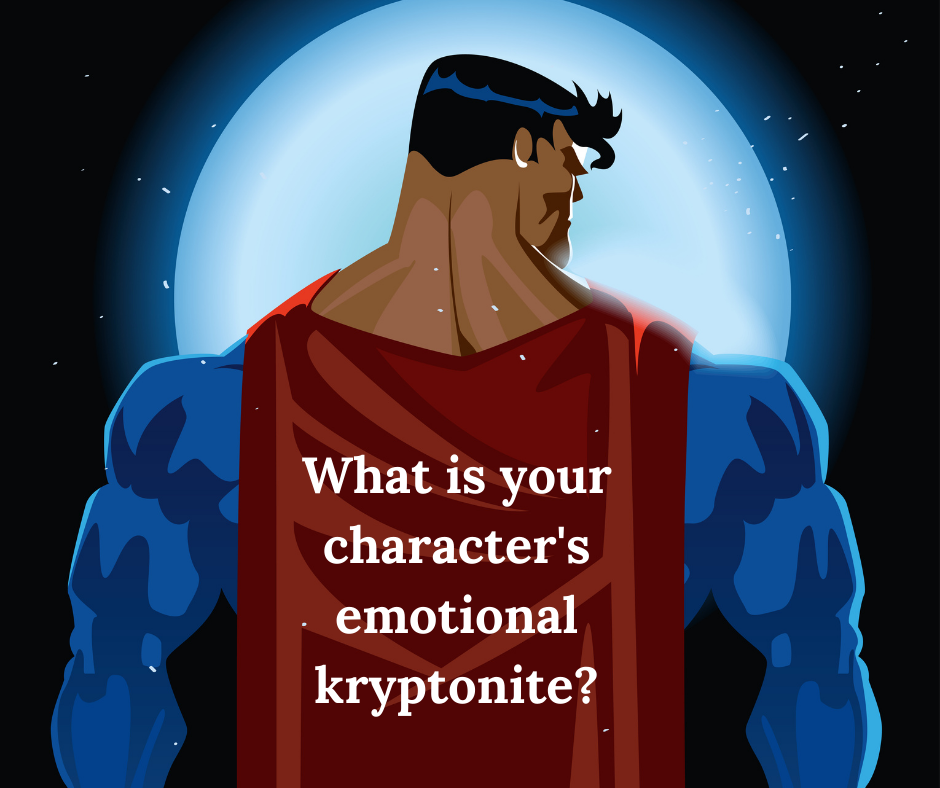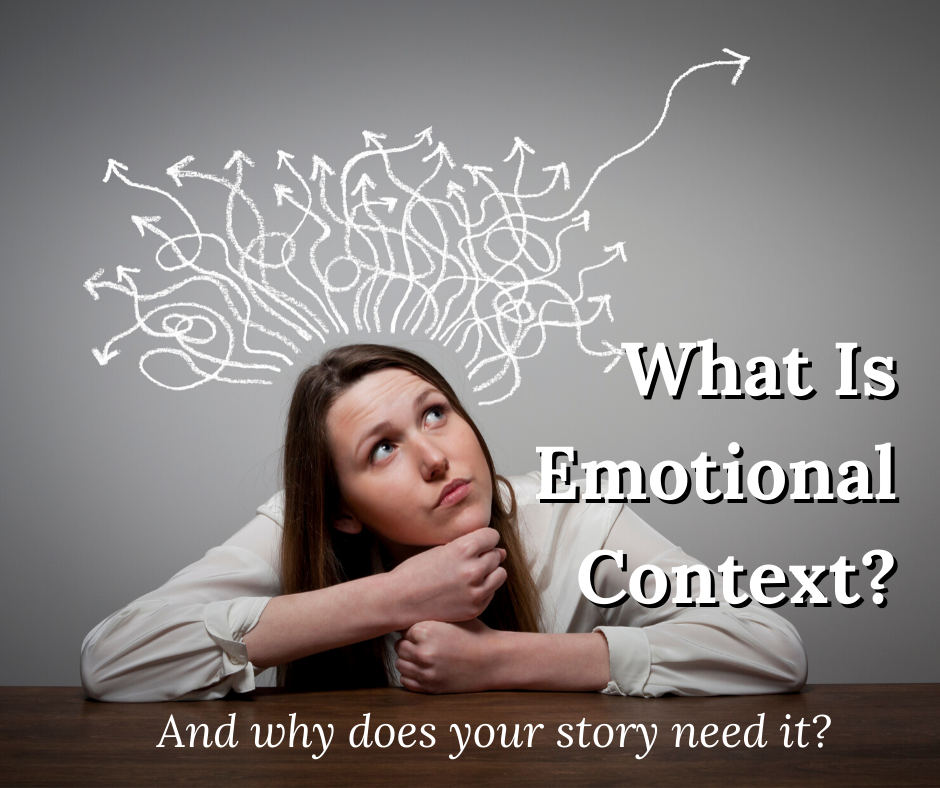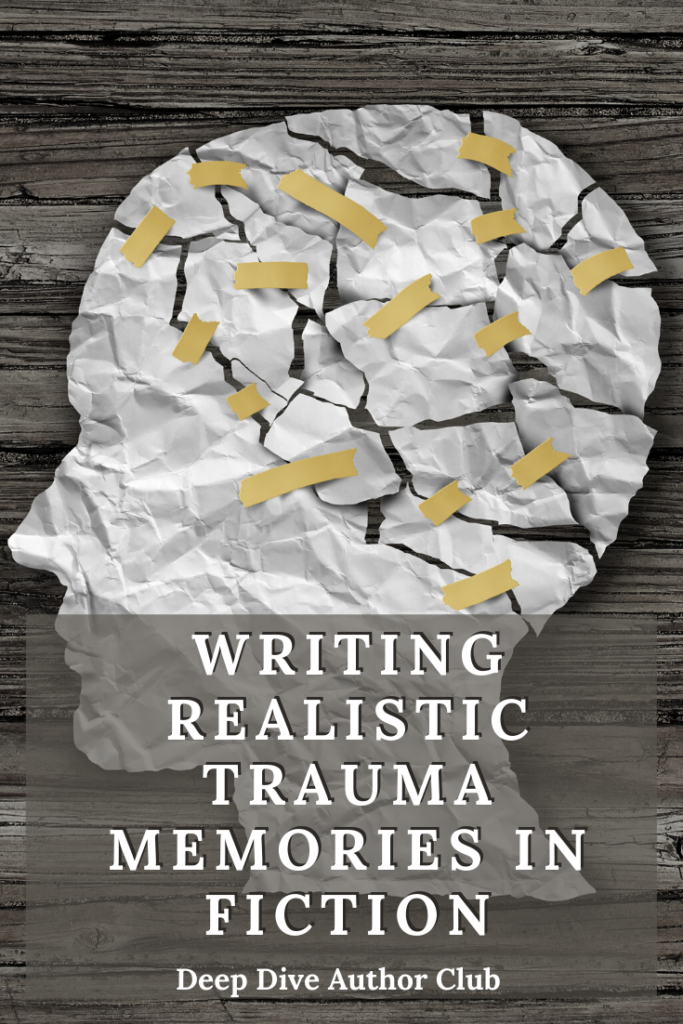
Emotions are complex, nuanced, and rarely linear. Most of us have a specific, painful, crunchy, emotion we’ll do almost anything to avoid — even if the avoidance is harmful or at the least not helpful. Psychology calls this “emotional avoidance.” When capturing your character(s) emotions, particularly when writing in deep POV, you must be willing to dive into that character’s lived experience in order to offer surprise and authenticity for readers with a visceral impact that creates emotional connections.
What Emotion Does Your Character HATE To Feel?
This may be linked to the story problem/stakes you’ve created, or it may be an identity issue that adds obstacles to resolving the character’s story problem. But this emotion must be specific and sometimes with a specific trigger.
And to the character, this specific emotion is intolerable. They will do anything to avoid feeling this way. One example that comes to mind are super heroes who forsake a romantic relationship because they’re afraid the “bad guys” would use their loved ones as leverage to hurt them.
They are partly concerned that others would be put in harms’ way simply for their association with them, but for a character who is otherwise mostly invincible — the fragility of the love from an ordinary person (one who might grow sick, or ill, or come to harm) is a vulnerability. They don’t understand or even WANT to understand vulnerability. They will live a solitary, lonely, existence to avoid this vulnerability.

The Avoidance Of This Emotion Becomes Their Kryptonite
Whatever emotion the character will avoid at all costs, the avoidance of that can cause harm. The specifics of this will vary. For those characters who have a trauma background, they may be able to survive only because they’ve voted specific emotions off the island – so to speak. I’m not allowed to be angry. But their inability to access or use those emotions eventually causes harm, right. In the case of anger, there are physiological changes that take place when we become angry — there’s an adrenaline rush, faster heart rate, shorter breathing, etc. That doesn’t go away, they need to do something with those feelings.
Like anything else, anger serves a purpose. By refusing to become angry, your character will internalize that and turn it inward. Because anger is about regaining control often, avoiding this emotion may look like an eating disorder, self-harming, addiction or substance abuse, excessive exercise, or stringent self-denial (I can’t go out with friends, I don’t deserve to/haven’t earned that). These behaviours are, at their core, about regaining or maintaining a sense of control.
Additionally, anger can be a survival or safety warning. Anger leads to change, to standing up for yourself, to ending abuse, ending injustice. Anger can be a very positive emotion.
Make sure whatever is used to avoid the emotion makes sense to the character. If they fear a lack of control, they may seek out ways to feel like they’re always in control. If they fear feeling taken advantage of, they may take responsibility for everything, even things that could never be controlled. The character whose kryptonite is failure may become a workaholic, may avoid any activities where they’re not assured they’ll succeed, cheat/lie/steal in order to appear successful, or avoid the feeling through substance abuse.
Tangible Consequences For Emotional Avoidance
It’s not possible to avoid specific emotions for an entire lifetime and not pay a price for that in some tangible way. Suppressing emotions can lead to all kinds of physical ailments and problems due to anxiety and elevated stress levels such as ulcers, heart/chest pain, chronic aches or pains without a physical cause, and certain psychosomatic disorders like psoriasis, eczema, high blood pressure, heart disease, etc.
I read one story where a woman complained that she hated going to family gatherings. Therapist asked why? Well, everyone’s judging me, she says. The therapist explored that a bit – well, she was sure that her family knew she drank too much and were judging her. The family had never said anything to her about the drinking.
The therapist continued to explore this. She admitted that she drank too much because she didn’t want feel the loss/sadness of a recent breakup. In her opinion, the consequences of drinking too much was acceptable to avoid these emotions.

How To Destroy The Kryptonite
Superman has it easy, he simply has to put some space between him and the rock. In real life, what needs to happen is an integration of those emotions that have been voted off the island. You have to sit with them, acknowledge their concerns, and find a way to live with them without having them take over the train and cause a wreck down the tracks.
What would that integration look like for your character? Most times, these are problems you have to think your way out of. Do they have a good friend they can unload on? Do they have someone who will hold them accountable for their avoidance behaviours? Do the consequences of their avoidance behaviours force them to seek change? And maybe they don’t. Some people, like in the story above, would rather live with the consequences than deal with the hard crunchy emotions that hurt.
If you’re looking for more ideas on how to destroy the emotional kryptonite, try this post where I got the inspiration for this one from.
What is YOUR character’s emotional kryptonite?
Been told you should learn Deep Point Of View? Had an editor or critique partner tell you to “go deeper” with the emotions in your fiction? Looking for a community of writers seeking to create emotional connections with readers? Join the Going Deeper With Emotions In Fiction Facebook group.
Again brilliant advice, comes at the right time as well. I hadn’t been thinking about the my protagonist reacting to avoid the trauma of her childhood
Most people will avoid thinking about/reminders of past trauma and hurts. But the more painful the event, the character’s ability to give context and create distance to the emotions of that event, mean they may avoid feeling that way at all costs. Even viewing harmful consequences as a fair trade.
I am currently working on a novel and about 10,000 away but the reason I have not finished is exactly what you discussed above. I am currently going back and looking at chapter by chapter and thinking do I make it clear why the antagonist does what he does.
Good post.
Barbara Strickland recently posted…Chilling Corner in February asks: Constructive criticism – a good guy or a bad?
Characters have to have emotion content to them, or else the story isn’t very compelling. And they often need to have at least some negative emotions, or else they won’t be relatable. It can be hard to write negative emotional content, though. Thanks for this discussion!
Wayne W Walls recently posted…The Uncertain Hour
I thought I’ve heard everything about my dark secret life that limits me and take away my joy and courage. This has made me to believe that I’m not good enough due to my failure to complete my engineering degree and my divorce with my previous wife. I’m hearing about kryptonite for the first time in my life today and I’m blown away by this article. This is so powerful I’m thankful to you Lisa Hall-Wilson.